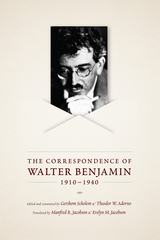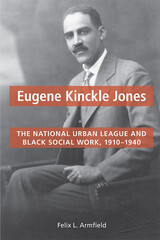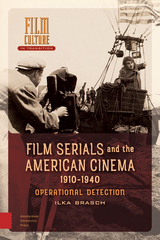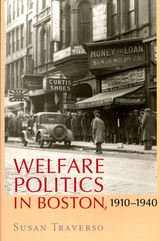5 books about 1910 - 1940

The Correspondence of Walter Benjamin, 1910-1940
Walter Benjamin
University of Chicago Press, 1994
Called “the most important critic of his time” by Hannah Arendt, Walter Benjamin has only become more influential over the years, as his work has assumed a crucial place in current debates over the interactions of art, culture, and meaning. A “natural and extraordinary talent for letter writing was one of the most captivating facets of his nature,” writes Gershom Scholem in his Foreword to this volume; and Benjamin's correspondence reveals the evolution of some of his most powerful ideas, while also offering an intimate picture of Benjamin himself and the times in which he lived.
Writing at length to Scholem and Theodor Adorno, and exchanging letters with Rainer Maria Rilke, Hannah Arendt, Max Brod, and Bertolt Brecht, Benjamin elaborates on his ideas about metaphor and language. He reflects on literary figures from Kafka to Karl Kraus, and expounds his personal attitudes toward such subjects as Marxism and French national character. Providing an indispensable tool for any scholar wrestling with Benjamin’s work, The Correspondence of Walter Benjamin, 1910–1940 is a revelatory look at the man behind much of the twentieth century’s most significant criticism.
[more]

Eugene Kinckle Jones
The National Urban League and Black Social Work, 1910-1940
Felix L. Armfield
University of Illinois Press, 2014
A leading African American intellectual, Eugene Kinckle Jones (1885–1954) was instrumental in professionalizing black social work in America. Jones used his position was executive secretary of the National Urban League to work with social reformers advocating on behalf of African Americans and against racial discrimination. He also led the Urban League's efforts at campaigning for equal hiring practices and the inclusion of black workers in labor unions, and promoted the importance of vocational training and social work.
Drawing on interviews with Jones's colleagues and associates, as well as recently opened family and Urban League archives, Felix L. Armfield blends biography with an in-depth discussion of the roles of black institutions and organizations. The result is a work that offers new details on the growth of African American communities, the evolution of African American life, and the role of black social workers in the years before the civil rights era.
Drawing on interviews with Jones's colleagues and associates, as well as recently opened family and Urban League archives, Felix L. Armfield blends biography with an in-depth discussion of the roles of black institutions and organizations. The result is a work that offers new details on the growth of African American communities, the evolution of African American life, and the role of black social workers in the years before the civil rights era.
[more]

Film Serials and the American Cinema, 1910-1940
Operational Detection
Ilka Brasch
Amsterdam University Press, 2018
Before the advent of television, cinema offered serialized films as a source of weekly entertainment. This book traces the history from the days of silent screen heroines to the sound era's daring adventure serials, unearthing a thriving film culture beyond the self-contained feature. Through extensive archival research, Ilka Brasch details the aesthetic appeals of film serials within their context of marketing and exhibition, looking at how they adapted the pleasures of a flourishing crime fiction culture to both serial visual culture and the affordances of the media-modernity of the early 20th century. The study furthermore traces the relationship of film serials to the broadcast models of radio and television and thereby shows how film serials introduced modes of storytelling that informedpopular culture even beyond the serial's demise.
[more]

Growth and Structural Changes in the Korean Economy, 1910-1940
Sang Chul Suh
Harvard University Press, 1978

Welfare Politics in Boston, 1910-1940
Susan Traverso
University of Massachusetts Press, 2009
Different conceptions of the purpose of charity and the role of the state have long been at the center of the debate over American welfare policy. Yet as Susan Traverso shows in this informative study of early twentieth-century Boston, ethnic, religious, and gender conflicts also have had a significant impact on welfare politics.
Between 1910 and 1940, Boston's growing immigrant population repeatedly clashed with the city's traditional elite over how to provide assistance to the needy. While Yankee politicians and the leaders of Protestant charities argued that relief should be delivered by private organizations, Irish politicians and officials at Catholic and Jewish charities advocated extensive public welfare programs. Competing views of gender roles further complicated these disagreements. The campaign for widows' pensions, for example, won wide popular support even as public welfare programs that would primarily benefit men-such as unemployment insurance and old age assistance-failed to gain acceptance.
In the 1920s, the debate over welfare shifted focus as prolonged periods of unemployment brought demands for aid to men who had lost their jobs, particularly those with families to support. Using the rhetoric of the Mothers' Aid campaign, Irish politicians broadened the idea of "acceptable dependency" to include men who needed jobs to provide for their own dependents. By lessening the stigma of male dependency on public welfare, these gendered arguments encouraged the expansion of public aid and set the stage for New Deal welfare programs of the 1930s. During that decade, Traverso contends, the idealized family headed by a male breadwinner became the basis for a shared vision of gender relations that mediated the political and ethnic debate over welfare policy.
Between 1910 and 1940, Boston's growing immigrant population repeatedly clashed with the city's traditional elite over how to provide assistance to the needy. While Yankee politicians and the leaders of Protestant charities argued that relief should be delivered by private organizations, Irish politicians and officials at Catholic and Jewish charities advocated extensive public welfare programs. Competing views of gender roles further complicated these disagreements. The campaign for widows' pensions, for example, won wide popular support even as public welfare programs that would primarily benefit men-such as unemployment insurance and old age assistance-failed to gain acceptance.
In the 1920s, the debate over welfare shifted focus as prolonged periods of unemployment brought demands for aid to men who had lost their jobs, particularly those with families to support. Using the rhetoric of the Mothers' Aid campaign, Irish politicians broadened the idea of "acceptable dependency" to include men who needed jobs to provide for their own dependents. By lessening the stigma of male dependency on public welfare, these gendered arguments encouraged the expansion of public aid and set the stage for New Deal welfare programs of the 1930s. During that decade, Traverso contends, the idealized family headed by a male breadwinner became the basis for a shared vision of gender relations that mediated the political and ethnic debate over welfare policy.
[more]
READERS
Browse our collection.
PUBLISHERS
See BiblioVault's publisher services.
STUDENT SERVICES
Files for college accessibility offices.
UChicago Accessibility Resources
home | accessibility | search | about | contact us
BiblioVault ® 2001 - 2024
The University of Chicago Press









